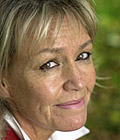Effectiveness of a Danish early year preschool program: A randomized trial
By Bente Jensen, Anders Holm, Sven Bremberg
Effectiveness of a Danish early year preschool program: A randomized trial
By Bente Jensen, Anders Holm, Sven Bremberg
VIDA draws on the experiences from the ASP-project (Action Competences in Social Pedagogical work with Socially Endangered Children and Youths).
For further information about the ASP-project, please see the ASP website here
VIDA draws on the experiences from the ASP-project (Action Competences in Social Pedagogical work with Socially Endangered Children and Youths).
For further information about the ASP-project, please see the ASP website here
Bente Jensen: A Nordic Approach to Early ChildhoodEducation (ECE) and Socially Endangered Children
In Early Childhood Education: November 2011, SAGE Publications
Bente Jensen: A Nordic approach to Early Childhood Education (ECE) and socially endangered children
In European Early Childhood Education Research Journal Vol. 17, No. 1, March 2009, 7–21 (Full text)
Bente Jensen: A Nordic Approach to Early ChildhoodEducation (ECE) and Socially Endangered Children
In Early Childhood Education: November 2011, SAGE Publications
Bente Jensen: A Nordic approach to Early Childhood Education (ECE) and socially endangered children
In European Early Childhood Education Research Journal Vol. 17, No. 1, March 2009, 7–21 (Full text)
VIDA is a research collaboration between DPU and Danish Clearinghouse for Educational Research, Aarhus University, University College South Denmark (UCL) and University College Lillebælt, (UCL), University College North (UCN). EPINION Analyse is a subcontractor in the project.
VIDA is a research collaboration between DPU and Danish Clearinghouse for Educational Research, Aarhus University, University College South Denmark (UCL) and University College Lillebælt, (UCL), University College North (UCN). EPINION Analyse is a subcontractor in the project.

Leader: Professor mso Bente Jensen
Mail: bj@dpu.dk
Tel: +45 8716 3969
The research project ‘Knowledge-based Efforts for Socially Disadvantaged Children in Day-care’ (VIDA) explores the overall research question: How can Danish general day-care improve socially disadvantaged children’s opportunities in life?
This comprehensive research project examines and documents which of two types of pedagogical interventions in general day-care are most effective at improving the learning and well-being of socially disadvantaged children. The overall goal of this effort is to stimulate children’s personal, linguistic and social competences as well as their logical understanding.
The research project comprises some 7,000 children in 120 day-care centers across four municipalities in Denmark. The intervention will thus be implemented in an inclusive environment; i.e. the ordinary day-care environment that is shared with other children. Two types of efforts are tested in this project. To be able to compare the two, the participating day-care centers are divided into three groups. In one group, focus is on the children’s well-being and learning (i.e. the VIDA basis model program). In another group, focus is on parental involvement as well as the children’s well-being and learning (i.e. the VIDA basis + parent model program). A third group of day-care centers is left to continue with their ordinary practice (i.e. the control group).
Click here for a more detailed description of the VIDA project
The project has been commissioned and is financed by the Danish Ministry of Social Affairs, Children and Integration
The research project ‘Knowledge-based Efforts for Socially Disadvantaged Children in Day-care’ (VIDA) explores the overall research question: How can Danish general day-care improve socially disadvantaged children’s opportunities in life?
This comprehensive research project examines and documents which of two types of pedagogical interventions in general day-care are most effective at improving the learning and well-being of socially disadvantaged children. The overall goal of this effort is to stimulate children’s personal, linguistic and social competences as well as their logical understanding.
The research project comprises some 7,000 children in 120 day-care centers across four municipalities in Denmark. The intervention will thus be implemented in an inclusive environment; i.e. the ordinary day-care environment that is shared with other children. Two types of efforts are tested in this project. To be able to compare the two, the participating day-care centers are divided into three groups. In one group, focus is on the children’s well-being and learning (i.e. the VIDA basis model program). In another group, focus is on parental involvement as well as the children’s well-being and learning (i.e. the VIDA basis + parent model program). A third group of day-care centers is left to continue with their ordinary practice (i.e. the control group).
Click here for a more detailed description of the VIDA project
The project has been commissioned and is financed by the Danish Ministry of Social Affairs, Children and Integration